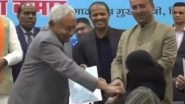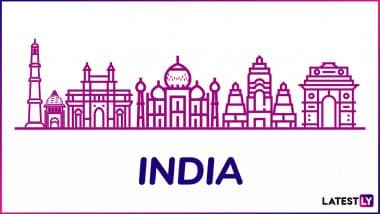Kozhikode (Kerala) [India], Jan 18 (ANI): Bangladeshi author Taslima Nasreen on Friday termed the contentious Citizenship (Amendment) Act (CAA) "very good" and "generous" and suggested that the new law should also include Muslim community, free thinkers and atheists, who are persecuted in neighbouring countries."It is good to give citizenship of India to persecuted religious minorities from Bangladesh, Pakistan and Afghanistan. But even people like me deserve citizenship. They have a right to live in India. The CAA is a very good idea and very generous one," said Nasreen on the second day of the Kerala Literature festival during a session titled "In Exile: A writer's Journey"."Islam should be more democratised and refined. We need more free thinkers. Uniform civil code should be based on equality, not religion," she said. Citing Muslim "atheists bloggers" who were killed by suspected Islamist militants in Bangladesh a few years ago, she said: "Many of these bloggers left for Europe and America to save their lives. Why cannot they come to India? Today, India requires more free thinker, secularist, feminist from the Muslim community."Nasreen left Bangladesh in 1994 in the wake of death threat by fundamentalist outfits for her alleged anti-Islamic views. Since then she has been living in exile.The author asserted that fundamentalists should be separated from anti-CAA protests. "Fundamentalism must be condemned. Both minority and majority community fundamentalists are the same. They both are against the developing society and equality of women," she said.Nasreen further said that she always feels like home in India. "People tell me that I am Bangladeshi, a foreigner. However, I always feel like I am at my home. I will live in India and only in India as long as I can," she said. The CAA grants citizenship to refugees from six minority religious communities -- Hindus, Parsis, Sikhs, Buddhists, Jains and Christians -- from Bangladesh, Afghanistan and Pakistan, provided they have lived in India for six years and entered the country by December 31, 2014. (ANI)
(The above story is verified and authored by ANI staff, ANI is South Asia's leading multimedia news agency with over 100 bureaus in India, South Asia and across the globe. ANI brings the latest news on Politics and Current Affairs in India & around the World, Sports, Health, Fitness, Entertainment, & News. The views appearing in the above post do not reflect the opinions of LatestLY)













 Quickly
Quickly


